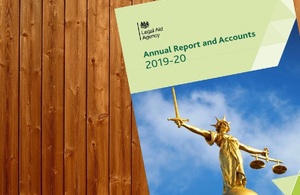This afternoon (Tuesday 21 July) we held our annual summer symposium for stakeholders, covering the exceptional arrangements in place for awarding GCSEs, AS and A levels, as well as other General Qualifications, Applied Generals and other similar Vocational and Technical Qualifications this summer.
Opening the event, Ofqual Chief Regulator Sally Collier thanked stakeholders for their collaboration, and paid tribute to schools and colleges for their hard work and professionalism in delivering this year’s exceptional arrangements on behalf of their students.
While everyone, including many students themselves, would have preferred exams and assessments to have gone ahead this summer, most students will receive calculated grades in time to progress to further study or employment. Any student unable to receive a calculated grade, or who would like to improve their grade in a subject will have an opportunity to take exams in the autumn.
Topics discussed at the symposium included:
Equalities
As in every year, fairness and equality has been at the heart of our decision-making for the arrangements for this summer. We have carried out equality impact assessments for all of our consultations, and sought input from a range of representative organisations.
We, like many others, have been concerned about the risks of bias in judgements used this summer and we have done everything we can to minimise or eliminate them.
Our preliminary analysis is very encouraging and suggests there will generally be no widening of the gaps in attainment between different groups of students. In other words, the concern that identifiable groups of students would lose out from this year’s arrangements has not been borne out.
We do recognise some students may still wish to appeal or make a complaint about their grade, and we – and the exam boards – are committed to making those processes straightforward for them and their families.
Standardising GCSE, AS and A level grades this summer
It is essential that we make sure the same standard is applied to the thousands of grades schools and colleges up and down the country submitted for their students. This is why the centre assessment grades schools and colleges have submitted are currently being statistically standardised.
We received broad support for the aims and principles of the standardisation model when we consulted earlier in the year. Since then, we have been extensively testing possible variations of the model to ensure we selected the one which gives students the most accurate results possible. Now that the deadline has passed for centres to submit their centre assessment grades and rank order information, it is possible to provide more information about how the model will operate. We are not publishing the precise statistical formulas being used; we will publish this detail on results days. It is an important principle that everyone finds out their results at the same time on results day and early publication of this information could lead to some unfairly finding out their results early or cause unhelpful anxiety if they are incorrectly calculated. The information we have published today provides greater detail to support understanding of the grading process this summer.
The model provides a critical tool to maintain standards, both between centres and over time. It will operate to align standards between different schools and colleges and ensure that national results are broadly in line with those in previous years. Overall, students’ results will be no worse and indeed slightly better. In designing the model, we have taken a number of decisions which work in students’ favour. For example, the historical data used in the model will be based on previous years’ results after any reviews of marking or appeals, and in tiered GCSEs we have allowed students to receive ‘off-tier’ grades, so that students will not fall off the higher tier and be ungraded if centre assessment grades are adjusted downwards. As a consequence, national results this summer may be slightly higher than last year’s, approaching an increase of 1% GCSE and around 2% for A level, although we will make sure there is not any significant change in year on year results for any subject which would undermine the value of the qualifications for progression.
Though the process of awarding grades this year is far from complete, we can see the likely extent of the adjustments needed to centre assessment grades to deliver consistent standards across schools and colleges. From the data that we have reviewed we expect the majority of grades students receive will be the same as their centre assessment grades, and almost all grades students receive will be the same as the centre assessment grades or within one grade. Results for students will therefore almost always be broadly in line with centres’ and teachers’ expectations, reflecting the skills, professionalism and integrity of those involved.
A substantial number of students will receive at least one grade that has been adjusted as a result of the standardisation process. And while some will be adjusted upwards, on average, centres have submitted grades that are higher than would be expected. That is not surprising, given that the circumstances meant teachers were not given an opportunity to develop a common approach to grading in advance; and they naturally want to do their best for their students. As such, if centre assessment grades were not statistically standardised, we would see results for 2020 that were, on average, 12 percentage points better than in 2019 at A level and 9 percentage points at GCSE; with greater peaks at some key grades such as 4 (at GCSE) and B (at A level). Improvement on such a scale in a single year has never occurred and to allow it would significantly undermine the value of these grades for students.
Any adjustments made as a result of standardisation will be precisely determined by exam boards for each subject in each school and college, and evidence based. And these adjustments mean universities, colleges and employers can be confident this year’s results carry the same value, and students can compete on a level playing field for opportunities with students from previous and future years.
We have published a fact sheet and film for centres and stakeholders which provide more detail about how GCSE, AS and A level grades will be standardised this summer.
Calculating results for VTQs
We discussed the principles underpinning the methodologies used to calculate results in VTQs, including the different sources of evidence used, and how assessments have been adapted for qualifications where a calculated results approach would have been inappropriate.
Appeals and autumn exams and assessments
The presentation covered the routes available to correct any errors, how to raise concerns about bias and opportunities to take exams or assessments in the autumn.
More information is available in the slide pack of today’s presentations.


